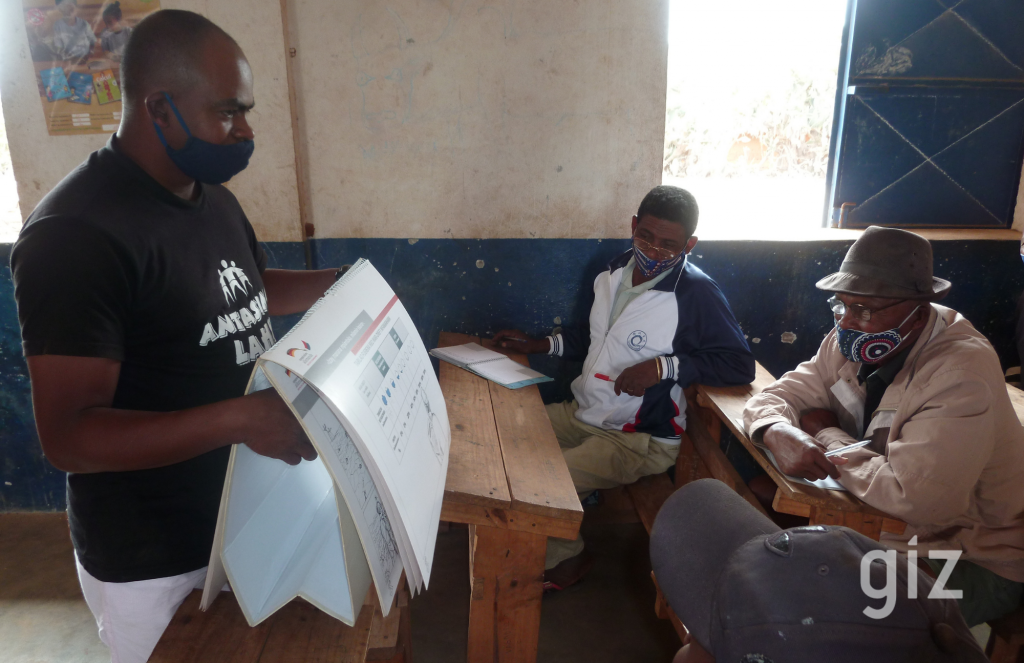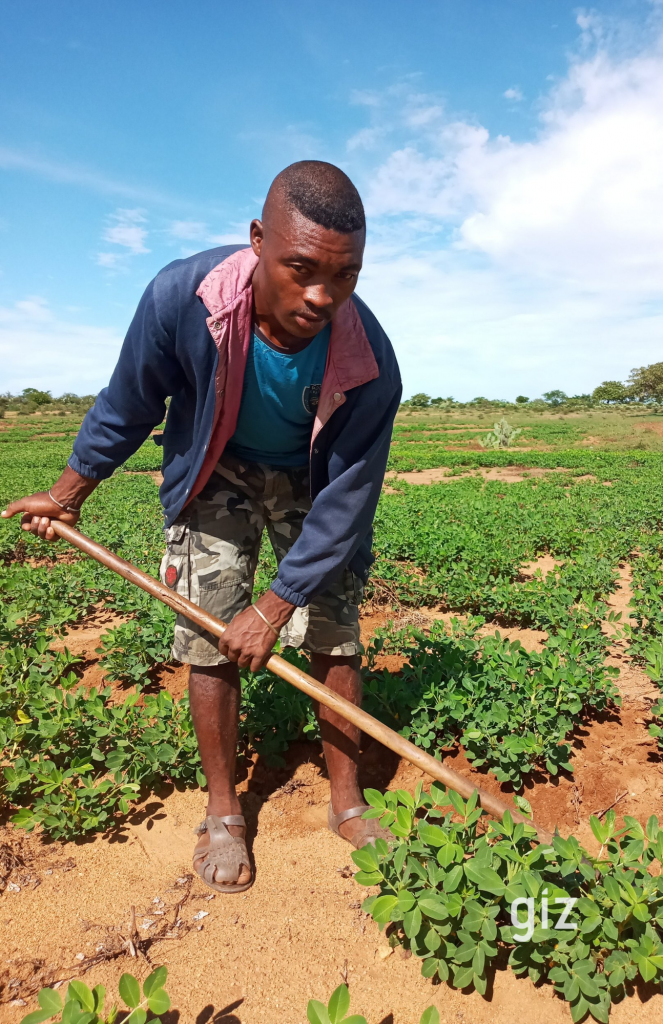Index Insurance for Madagascar’s Groundnut Farmers
by Yohana Tesfamariam Tekeste and Souha Ouni
Designing financial tools and processes that help farmers bounce back from droughts and other extreme weather events is a crucial part of their strategy to adapt to longer-term climate change. The Financial Instruments Sector Team (FISTeam) of the International Research Institute for Climate and Society has been an innovator in this field, designing and helping implement index insurance and index-based disaster risk management projects for more than a decade.
Developing a reliable index requires good historical climate data based on a variety of sources, including rainfall estimates from satellites. A fundamental challenge is to make sure to reconcile data from satellites and models with the farmer’s on-the-ground experience, to make sure the insurance products that are developed actually meet the needs of those who are utilizing them. The FISTeam has learned that many projects fail because they don’t involve farmers and local experts in the design and governance process. Through partners, collaborators, and educational activities, the IRI team has focused on engaging the players necessary to represent the wide array of expertise and perspectives to build truly community-driven solutions.
The most recent rendition of this played out with the Adaptation of Agriculture Value Chains to Climate Change (PrAda) project in Madagascar, where the FISTeam partnered with the German Society for International Cooperation (GiZ) to provide support in the development of climate risk insurance. Madagascar is an island country that is heavily reliant on agriculture and especially vulnerable to climate variability and change.
The PrAda team and Madagascar’s Ministry of Agriculture and Livestock (MINAE), National Department of Meteorology (DGM) and other partners conducted a detailed climate-risk analysis for selected agricultural value chains, which demonstrated how droughts and other forecasted climate hazards could impact the revenues of smallholder farmers and threaten the livelihoods of rural communities.
In the Androy region, for example, the partners identified the peanut value chain as having the clearest and strongest vulnerability to drought, thereby allowing the design of a climate risk insurance product. For the 2020-2021 season, a pilot was set up to serve groundnut farmers in the Androy, Bekily and Ambovombe districts.
Due to COVID-19 travel restrictions, the IRI team had to quickly adapt its capacity building, training, field visit methodology to be communicated remotely and to ensure all the necessary information and infrastructure was available for the local partners to carry out the necessary scoping and data collection process. The team improved its data collection forms and conducted virtual workshops for partners and stakeholders.
Even with these new restrictions, the FISTeam was able to go through all of the index insurance conceptualization process with the partners. Preliminary feasibility assessments such as mapping index design potential, gathering site-specific information and working with experts to help better understand the need for an insurance product on the ground all took place. This process includes visits to the locations in question to obtain the farmer’s agricultural practices and recollected bad years experienced on the ground. Once the initial phase was completed, a pilot index design was co-developed by local experts, consulting a variety of rainfall datasets identified in the initial step along with vulnerability data such as farmers’ bad years and expert reporting.
Throughout the pilot season, the partners conducted a series of seasonal rainfall monitoring processes to assess the relative historical ranking of the current rainfall distribution and compare it to the farmers’ reported cropping cycle for groundnuts. The monitoring process informs the stakeholders about the performance of the index and provides insight on ways to improve the design.

The 2020-2021 rainy season started late, and the pilot project helped partners understand how farmers experienced the season and how index insurance would be useful for their decision making in a late-onset scenario. Although the pilot index did not trigger insurance payouts, the stakeholders held a number of discussion sessions on what kind of index is better suited for Androy and the type of data that would be valuable for the design and validation of the index insurance.
The PrAda pilot serves as an example of the ways in which an approach that values co-development and is inclusive of community voices is able to provide valuable insight on concrete next steps of index insurance refinement and improvement.


You must be logged in to post a comment.